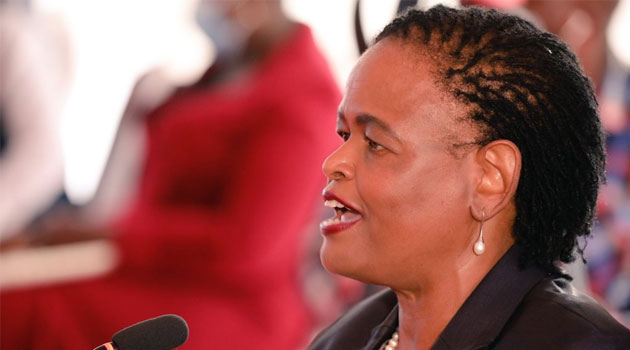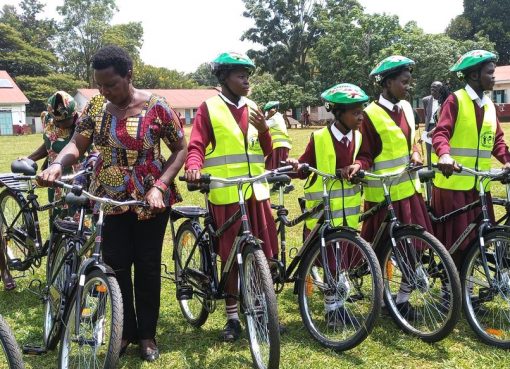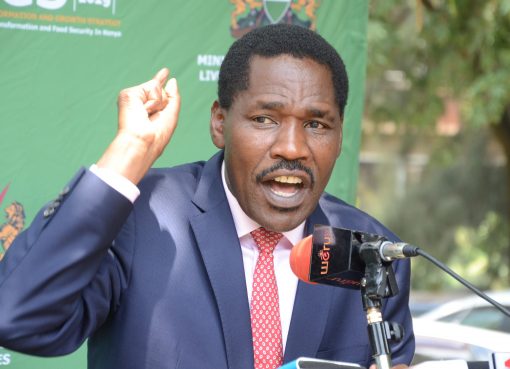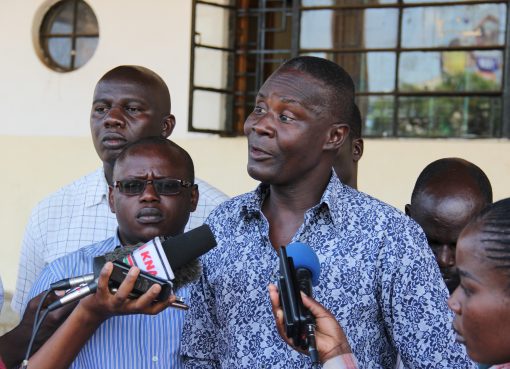The Executive has pledged to support the Judiciary’s infrastructure requirements in an effort to ensure social transformation through access to justice.
Speaking in Nairobi, Friday, during the National Council on the Administration of Justice (NCAJ) meeting, Chief Justice Koome, said the meeting of the NCAJ – the first since May 2019, is crucial due to overlapping jurisdictions and shared responsibility in ensuring access to justice for all Kenyans.
She said her vision is to see an enhancement of collaboration and cooperation in the activities of the justice agencies to power her transformative social justice vision for Kenyans.
“This does not mean that our agencies are not independent, but it is out of the reality that it is only through coordination of our activities that we can attain efficiency and resolve systemic problems in pursuit of our common goal of effective delivery of services to Kenyans,” said Koome.
She at the same time thanked the European Union (EU) in partnership with United Nations Office on Drugs and Crime (UNODC), for donating 444 laptops, 106 printers and 12 video-conferencing equipment, that will help in effective delivery of justice through the Programme for Legal Empowerment and Aid delivery in Kenya (PLEAD).
“As the Judiciary we are committed to reducing the backlog in our courts by focusing on individual responsibility of the Judges and Magistrates in justice delivery,” said the CJ.
CJ Koome, said she envisions a judiciary where social justice cascades down to the ‘mwananchi’, empowering the citizens to take agency of themselves and realize that they can also solve cases by themselves.
She revealed that the Ministry of Information, Communication and Technology (ICT) had offered to help the Judiciary to set-up a station at the Huduma Centers to ease accessibility of legal services to Kenyans, adding that the donated equipment will help support the establishment of the judiciary’s e-filling systems.
The Chief Justice further said that they will regularly review sentences to decongest prisons, remands and police holding cells.
Speaking at the meeting, Interior Cabinet Secretary (CS), Fred Matiang’i, said the government would provide housing facilities with the Judiciary to ensure timely delivery of Justice and to expand the doorways of justice available for the public.
“It’s embarrassing we are evicting the Judiciary Training Institute (JTI) as though they are not part of the government,” Matiang’i said, in reference to the planned ejection of the JTI from government premises.
He added that there was a need to ensure judicial officers are properly housed in government facilities that lie idle in various parts of the Country.
“The government is committed to facilitate release of houses in Nairobi, Kisumu, and Mombasa for use by Judges and Judicial Officers,” stated CS Matiang’i.
He was categorical that the Executive has no intention to encroach on the independence of the Judiciary, but said all institutions must work closely to ensure justice is served to the Kenyan public, emphasizing that engagement does not amount to compromise.
The CS revealed that the Ministry of Interior has embarked on restructuring security services to the Judiciary, stating that the Ministry is giving unprecedented attention to the security back-up for the Judiciary.
Matiang’i acknowledged the need for inter-government agencies to seek out-of-court solutions, citing disagreements between County Governments and the National Government.
He urged courts to make decisions on matters that are pending, especially where Conservatory Orders have been issued, alluding that the government has projects worth Sh186 billion tied-up in cases before the courts.
“We are not seeking rulings in our favour, but at least make a decision,” he said, pointing out that this would save the public resources.
CS Matiang’i said Interior Ministry fully supported the reinstatement of instant fines for traffic offenders, a position backed by Inspector General of Police, Hillary Mutyambai.
While giving his Speech, Attorney General Kihara Kariuki, asked the CJ to appoint a taskforce under the guidance of his office that will formulate a Bill to make the NCAJ an independent institution.
On his part, Director of Public Prosecutions, Noordin Haji, said his office was keen to see the conclusion of corruption cases, stating that there were currently 141 high profile cases pending before anti-corruption courts, with the oldest case having been in court for the past 14 years.
Haji noted that there is a need to have a joint team develop a Rapid Results Initiative for corruption cases.
In his remarks, Mutyambai said the instant fines would be a game-changer and would reduce the case backlog in the courts.
On the fight against corruption, EACC Chief Executive Officer, Twalib Mbarak, asked the CJ to decentralize anti-corruption registries to the regions and committed to pursue ‘high impact’ corruption cases that have the biggest effect on the economy.
Present at the meeting were, Maureen Mbaka, Chief Administrative Secretary Ministry of ICT, Innovation and Youth Affairs, Nairobi Metropolitan Service Director General, Mohammed Badi, Director of Criminal Investigations, George Kinoti, Florence Omundi, Deputy Commissioner General for Prisons, Alice Ondieki, Executive Director, Witness Protection Agency, Mary Mbau Director Probation and After Care and officials from the Judiciary led by Chief Registrar of the Judiciary Anne Amadi among others.
By Moffin Opilio and Njeri Kariuki





